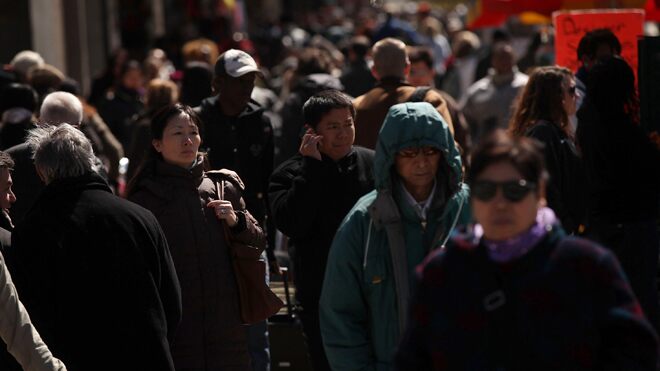Get all the latest news on coronavirus and more delivered daily to your inbox. Sign up here.
A study completed by the U.S. Census Bureau in collaboration with five federal agencies found that one-third of all Americans are struggling with anxiety or depression amid the coronavirus pandemic.
With at least 100,000 deaths reported in the United States due to the coronavirus and months-long stay-at-home orders isolating billions globally, mental health has become a serious issue.
The study, which was initiated on April 23, ran for 90 days and collected data from approximately 40,000 people.
According to the results, 47.4 percent of adults age 18 to 29 showed signs of anxiety or depression, where only 19.8 percent of adults in their 70s exhibited signs.
WHY DOES ZOOM EXHAUST YOU? SCIENCE HAS AN ANSWER
The findings also reportedly show a direct correlation to the pandemic, as a question relating to depression from a 2014 study reported nearly 50 percent less adults who exhibited signs.
People with less education and in the 18-29 age group also had higher rates of anxiety and depression, the study found.
Hispanic and black adults also showed higher rates of depression than Asian or white communities that were surveyed, according to the data.
Black communities in the U.S., such as communities in Chicago, for example, have also statistically been hit the hardest by the coronavirus, according to health experts.
CORONAVIRUS EXERTS HEAVY TOLL ON BLACKS IN PLACES LIKE CHICAGO
Black Americans made up more than 50 percent of Chicago’s coronavirus cases and nearly 75 percent of the city’s reported COVID-19-related deaths in early April.
The study is intended to collect data in order to measure “the social and economic effects of COVID-19 on American households,” according to the U.S. Census Bureau.
CLICK HERE FOR THE FOX NEWS APP
The survey will help monitor American mental health and align “national health objectives, evaluate health policies and programs, and track changes in health behaviors and health care use,” according to the Centers for Disease Control and Prevention (CDC) and the Census Bureau.






